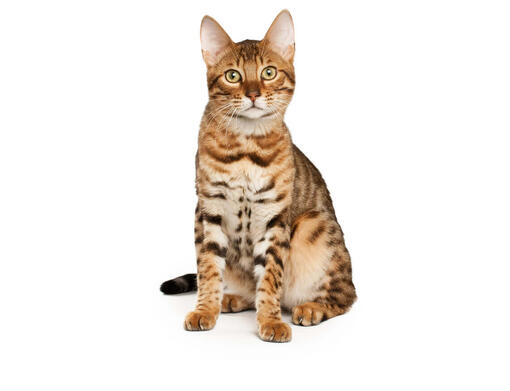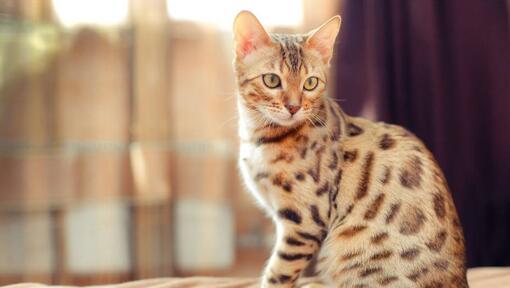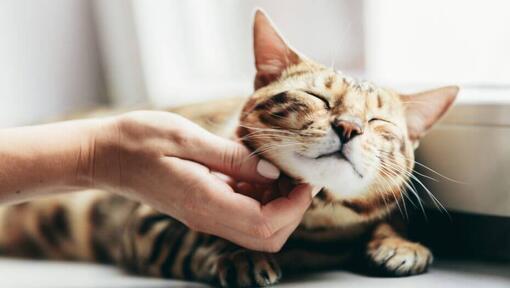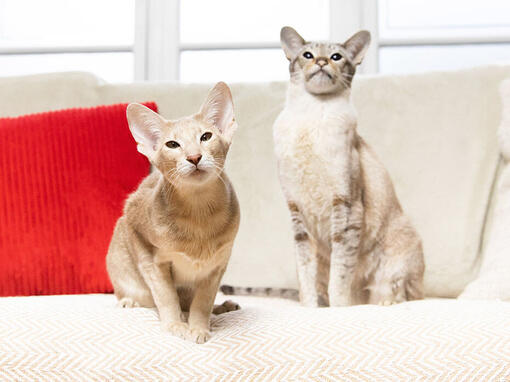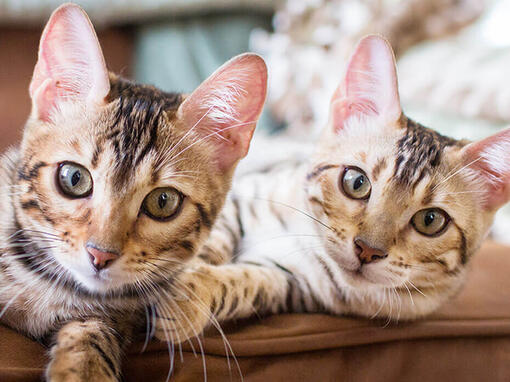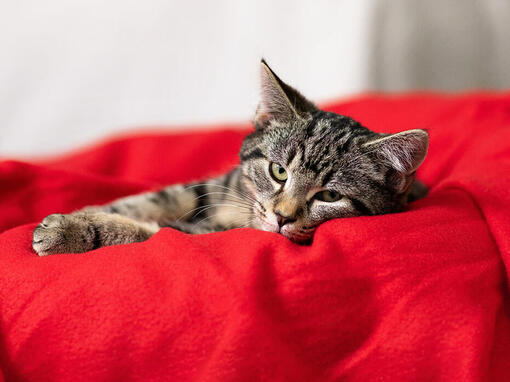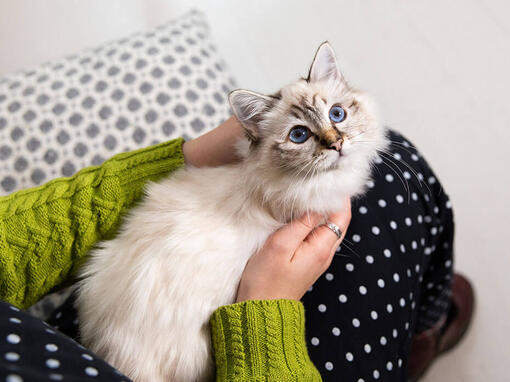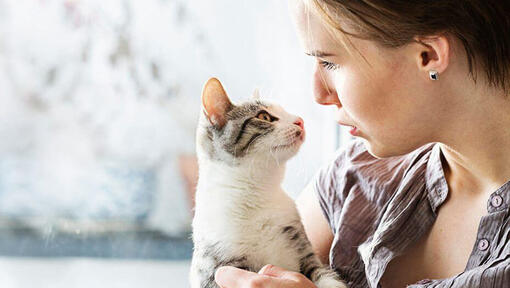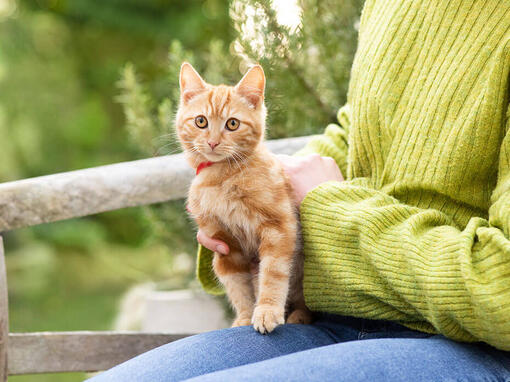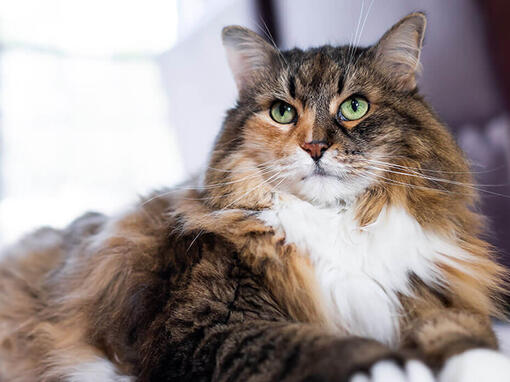- Highly active and inquisitive cat
- Friendly but independent cat
- Very talkative cat
- Lean and elegant cat breed
- Requires grooming once a week
- Non hypoallergenic breed
- Outdoor cat
- May require familiarisation before living with children
Personality
Bengal cats have an affectionate disposition. They have an extremely energetic, playful nature. Bengal cats are intelligent and seem to look at everything around them as, 'can this be played with?' They are agile, love to climb and can be vocal with a distinctive voice which has been described as a cooing or chirping, or as a strange gravelly sound. Bengal cats are a very vocal breed and have a wide vocabulary that may on occasion be quite strident, especially in unfamiliar situations. They need companionship during the day to prevent boredom as well as opportunities to climb and simulate hunting.
History and Origins
Country of Origin: USA
The Bengal cat is a relatively new breed of cat that was originally created by crossing an Asian Leopard Cat with a domestic cat in the USA. The Bengal cat derives its name from the Latin name of its wild ancestor, Felis Bengalensis (Asian Leopard Cat). The goal in developing the domestic Bengal cat breed was to preserve a strong physical resemblance to its beautiful wild ancestor and, at the same time, the new domestic breed was designed to be a pleasant and trustworthy family companion.
There are no inherited defects listed for the Bengal cat breed yet but it is suggested that they may have a higher prevalence of a heart condition called hypertrophic cardiomyopathy than some breeds. Some Bengal cats also seem to be more susceptible to feline infectious peritonitis.
Every cat is unique and each has their own particular likes, dislikes, and needs when it comes to food. However, cats are carnivores and every cat must obtain 41 different and specific nutrients from their food. The proportion of these nutrients will vary depending on age, lifestyle, and overall health. So it's not surprising that a growing, energetic kitten needs a different balance of nutrients in her diet than a less active senior cat. Other considerations to bear in mind are feeding the right quantity of food to maintain 'ideal body condition' in accordance with feeding guidelines and catering to individual preference regarding wet or dry food recipes.
The Bengal cat's short glossy coat does not require excessive grooming but they will enjoy the attention gained from being groomed. As with most shorthair breeds, Bengal cats look after their coat very well. As with all cats, this breed needs regular vaccinations, parasite control and annual health checks.
While this breed is not widely recognised as one of the best breeds for children, all cats are different and with the proper familiarisation may still be able to live with children.
